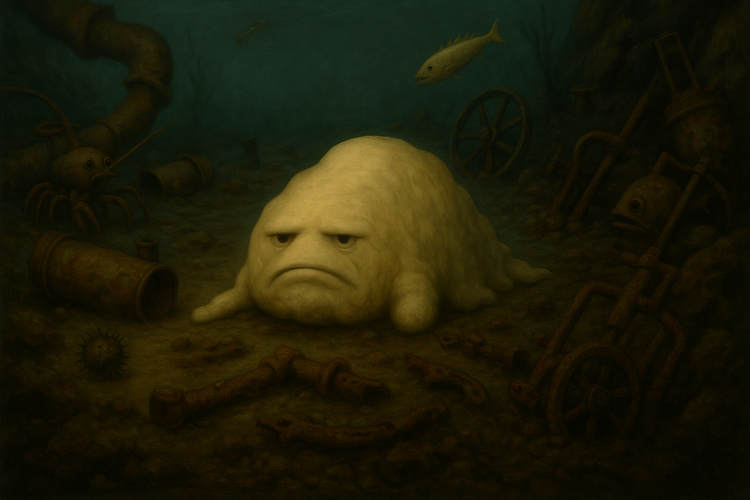Does This Smell Right?

You can't not smell something, even if you plug your nose completely. If the surrounding air contains odiferous molecules, at least some of it will make its way into your olfactory organ, and you will experience a smell. In a worst case scenario, these molecules will have just recently left rotting dairy products, or your friend's butt.
Every other sensory input to your brain has to go through a processing system of axons before getting to your conscious awareness. And that process can be modulated by any number of other important brain functions. You might be able to shut it out, either physically or mentally.
But smell does what it wants. Nose neurons grow directly out of your brain, so they skip the processing line and go straight in. It's an evolutionary quirk. Smell is the oldest sense, at least half a billion years old.¹ The ancient neural foundation reinforces smell's importance and gives it VIP access to your mind.
Specific scents trigger particular emotions, or memories. You can't help but feel a certain way with smell. You don't necessarily have to be conscious of it's input at all times, but your sniffer is a very active, emotionally-salient detective organ on the end of your face.
I'm not sure why, but I seem kinda interested in noses.
It feels like an underrated piece of biological machinery. You'd get no argument from a bear (or a salmon for that matter, whose sense of swell is powerful enough to reenter the same stream after traversing thousands of miles of open ocean), but I think maybe smell should outrank other body parts, especially the two constantly battling each other for the brain's attention: head and heart.
Not to knock neurology or cardiology, but who cares what's reasonable or feels right if it doesn't pass a "sniff" test?
Smell keeps popping up for me. Last week, I submitted my finished book manuscript to my publisher, and I was relieved at the lack of an unpleasant odor during my final review. And following an invisible but detectable trail is what got me the book contract in the first place.
The whole experience of writing a book was surreal, and fortunately I had an extremely patient editor who calmly explained new things like "plot" and "grammar". More than anything, the experience taught me to trust my nose: it’s not an over-analyzer like the brain, yet also less susceptible to emotional appeals than the heart. The nose puts itself to the ground and follows the trail faithfully.
In my opinion, an excellent guide.
Not to say perfect. You can't aways be sure what's at the end of that scent trail. Things just waft out, and the perceptive smeller follows. It's instinctual. It may not be the sense with the sharpest definition, but it sure is powerful. Bears and salmon know what they're doing.
But I'm a human with pesky questions like, "Why?". And the nose is no good at answering that (unless the odor in question is In-N-Out hamburger). It just tells you to follow or to avoid. Smell is ancient, but not a higher form of thinking. It's basal. Crude. A good way to get around in a dark place if you don't have any better options.
If you're relying on smell, you have to be patient.
Most humans (no judgement) have forgotten how to be patient. Our pet organ, the mind, loves to play the "why" game. It'll happily offer an intellectual rationale for any variation on that question. Whereas the heart might act dramatic and take offense, believing such questions belittling.
But then again, who said that question needs answering right now?
I haven't been able to totally articulate my precise creative goals are, because I don't think I can. You might as well ask a salmon why it swims upstream. I have to. Of course I'd love to earn a living bringing forth creative projects into the world, but it would just make it more sustainable to do so.
I'll do it anyway. I’m not really following my brain, or my heart, or most of my other organs most of the time. I’m following my nose. As the oldest sensory organ, I guess that just smells right.
- More ancient than hair, ears, jaws and fax machines.





Comments ()